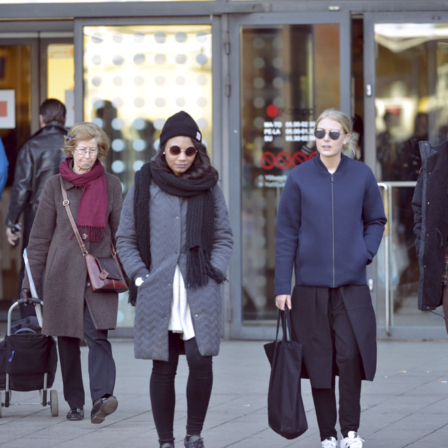In the future, the Isaacus system, currently being developed, will combine the data resources and their users easily and securely. This promotes the involvement of individuals, enhances well-being and creates a constantly updated ecosystem of well-being and health. In the series of blogs on Isaacus, experts will highlight the subject from their own perspective.
In international studies, Finland has been described as a country that sits on a treasure chest full of data. And not without a reason: lying around in our treasure chest we have high-quality research material, statistical data and registries, the developing National Archive of Health Information (Kanta) system, and expanding biobanks and gene banks.
This data, stored in various places, is already used for research, but all the other opportunities provided by these resources have gone unused. We look at our neighbouring countries, such as Denmark, with envy, because they grant twice as many authorisations to use registry data for research as Finland. Our materials are as good as theirs – and in certain respects even better. We do not lack competence either, and Finland is also listed among the leading countries in international studies concerning health and eHealth.
Personal well-being and health data increases the information base. However, it feels as if these nuggets of ore are scattered all around. In the dispersed field of operations, the registry keepers are doing their best, but a lot remains to be done to improve the overall picture. “It is time-consuming, complicated.” “There is no information.” “Combining data is difficult.” “Both time and money are wasted.” These feelings sum up some of the feedback we have received from various research and development communities and companies.
How can we refine the nuggets of ore?
In this process, we have little use for the basic Finnish way of thinking: what do they think of us, and what if our material is good for nothing, and are we even attractive partners?
We have to look forward, and start building upon our own strengths and opportunities. We have to improve our operating environment and enable the use of data materials for research, development and innovation activity. If we ask the users, they would ask for more speed, agility and new methods. We need a novel and cost-efficient division of duties and networking between public and private operators.
Need for enabling measures
When we were kids, we played treasure hunts. The future is not for hiding information, but it is an era of the use and open sharing of data. The winners will include researchers, developers and organisations that combine their subject-based competence with the use of data materials, no matter whether they are public or private, and also, naturally, the Finnish people who will get better services and products.
The Ministry of Social Affairs and Health will answer these future challenges by developing legislation that enables the use of social and healthcare data and by building a National Health Data HUB to serve those needing information, in collaboration with Sitra and other operators. Sitra’s Isaacus project lies at the heart of this effort. It develops new operating models, tests ideas and creates foundations for ecosystems.
The national data resources and the opportunities for using them can constitute an innovation platform that attracts both Finnish and international researchers, developers and entrepreneurs. At its best, Isaacus would enable the use of data resources in an agile and reliable manner for the benefit of personal involvement, health and well-being of individuals.
#isaacus


Recommended